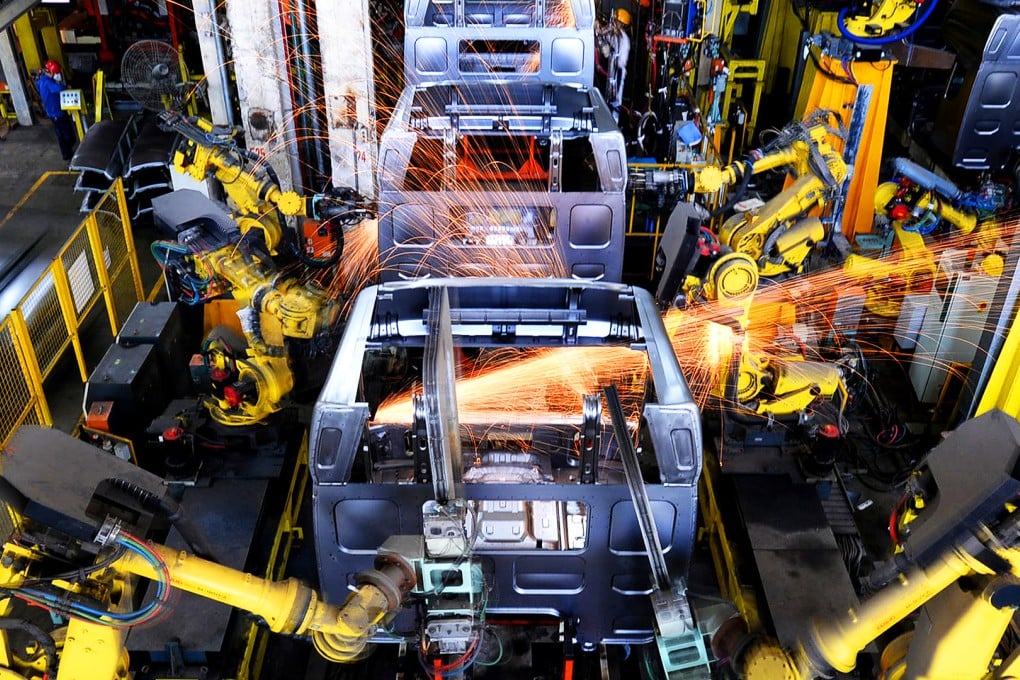'Made in China': the smart revolution blueprint set to bring Beijing into the digital age
Beijing's plan to fully bring manufacturing into the digital era is ambitious but success requires careful coordination with wider reforms, experts say

The "Made in China 2025" blueprint rolled out by Beijing last month is widely seen as a counterpart to Germany's "Industry 4.0" strategy - an effort to create a manufacturing revolution underpinned by smart technologies.
The ambition is to turn China into a "strong" manufacturing nation within a decade, with the priority on digitalisation and modernisation of 10 sectors, including aerospace, railways, new-energy vehicles and new materials. If successful, it would be a huge step up for China from the "world's factory", which for decades saw it churn out mainly cheap, low-quality clothes, toys and other goods.
The plan, briefly announced during the national political meetings in March and fleshed out in more detail on May 18, has excited the market, pushing manufacturing stocks to new highs.
How does the new plan fit into the broad framework of SOE reforms?
Beijing is keen to cut its reliance on technology imports from the West. Promoting high-end manufacturing is also China's response to worsening productivity, slowing economic growth, and a shrinking workforce that has made its labour costs no longer cheap compared with other emerging markets such as Vietnam and Brazil.
According to Citigroup, China plans to invest 8.02 trillion yuan in the next few years to modernise and transform its industry - a far more ambitious programme than Europe's plan to spend an estimated €1.35 trillion (HK$11.50 trillion) on similar improvements over a much longer timeframe of 15 years. Yet some observers fear "the loud thunder might result in little rain" - as one Chinese proverb puts it.
Stephen Roach, former chairman of Morgan Stanley Asia and a veteran China watcher, called the vision "another of China's classic goal-oriented plans".
"'Made in China 2025' is a very ambitious and aspirational goal, but until the path to that goal is clarified, it smacks more of rhetorical flourish than a credible commitment," Roach, now a Yale University professor, said.
For Roach, a key question is: "How does the new plan fit into the broad framework of SOE [state-owned enterprise] reforms?"
